Are you looking to break down language barriers and expand your global reach? Understanding the importance of effective communication in multiple languages is crucial for any thriving business. In this article, we'll explore how to structure a compelling inquiry for professional translation services that cater to diverse audiences. Join me as we delve into tips and templates that can help you articulate your needs clearly and efficiently!
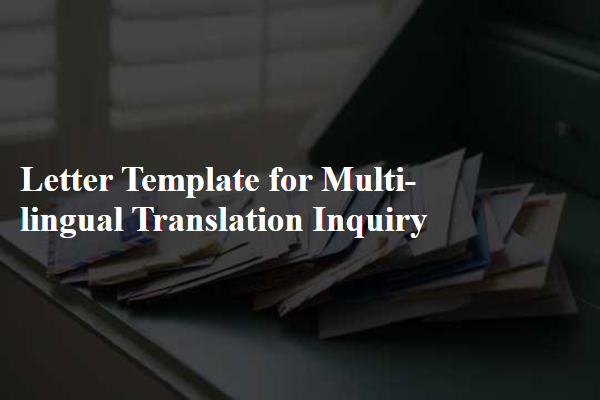
Language pair specificity
A multi-lingual translation inquiry focuses on specific language pairs, such as English to Spanish or French to Mandarin. Identifying the target languages is crucial for effective communication and understanding. For instance, when translating legal documents, terminology from specialized fields must remain intact to preserve context. Service providers, like translation agencies located in New York or London, often highlight expertise in particular language pairs. Quality assurance processes, including native speaker reviews, play a vital role in ensuring accuracy. Additionally, variations in dialects, such as Latin American Spanish versus Castilian Spanish, can impact the choice of translator. Effective inquiries require detailed specifications about document type, word count, and preferred turnaround time.
Tone and style guidelines
When inquiring about multi-lingual translation services, the tone should be professional and courteous. Provide specific details such as the source language (e.g., English), target languages (e.g., Spanish, Mandarin), and the type of document (e.g., legal, marketing). Include any particular style guidelines, such as formal or conversational tone, cultural nuances for the target audiences, and any industry-specific terminology. Mention the desired turnaround time and file format preferences (e.g., Word, PDF). Highlight the importance of accuracy and consistency, especially for technical documents or sensitive materials. Important reminders: address potential translators respectfully, emphasize the unique aspects of the project that require skilled attention, and clarify the scope of work to avoid misunderstandings regarding cost and timelines.
Deadline and turnaround time
When seeking multi-lingual translation services, understanding deadlines and turnaround times is crucial for project management. Different languages, such as Spanish, Mandarin, and Arabic, may require varying amounts of time for accurate translation due to factors like linguistic complexity and cultural nuances. For instance, translating technical documents can take longer than casual correspondence, often exceeding 72 hours for a thorough review. Establishing clear deadlines--whether 3 days for 1,000 words or 2 weeks for specialized content--ensures timely delivery and alignment with project milestones. Additionally, identifying the service provider's capacity to handle last-minute requests can significantly affect project timelines and overall satisfaction.
Subject matter and terminology
In multilingual translation projects, subject matter expertise and accurate terminology are crucial for maintaining the integrity of the content. Specialized fields such as medical, legal, and technical often require translators with in-depth knowledge of relevant terms and concepts. For instance, medical translations must adhere to specific language nuances to ensure patient safety and compliance with regulatory standards. Terms like 'neoplasm' or 'hypertension' necessitate precise translations to avoid misinterpretation. Legal documents demand a thorough understanding of jurisdiction-specific language, where terms like 'affidavit' and 'litigation' can vary significantly across languages. Therefore, selecting a translator with subject matter experience ensures clarity and accuracy in the final translated document.
Budget and payment terms
When inquiring about multi-lingual translation services, essential elements include budget (financial allocation for translation projects) and payment terms (conditions under which payments are made). For translation services covering various languages, including Mandarin, Spanish, and French, costs can vary significantly based on word count (total number of words). A detailed breakdown (itemization of costs) is crucial to understand expenses. Additionally, terms such as upfront payment (initial fee before project commencement) and post-delivery payment (final fee after project completion) must be clearly stated to ensure smooth transactions. Payment methods (credit card, PayPal, bank transfer) also play a vital role in the overall process. Clarifying these points fosters effective communication and sets clear expectations.
Letter Template For Multi-Lingual Translation Inquiry Samples
Letter template of inquiry regarding translation services in various languages
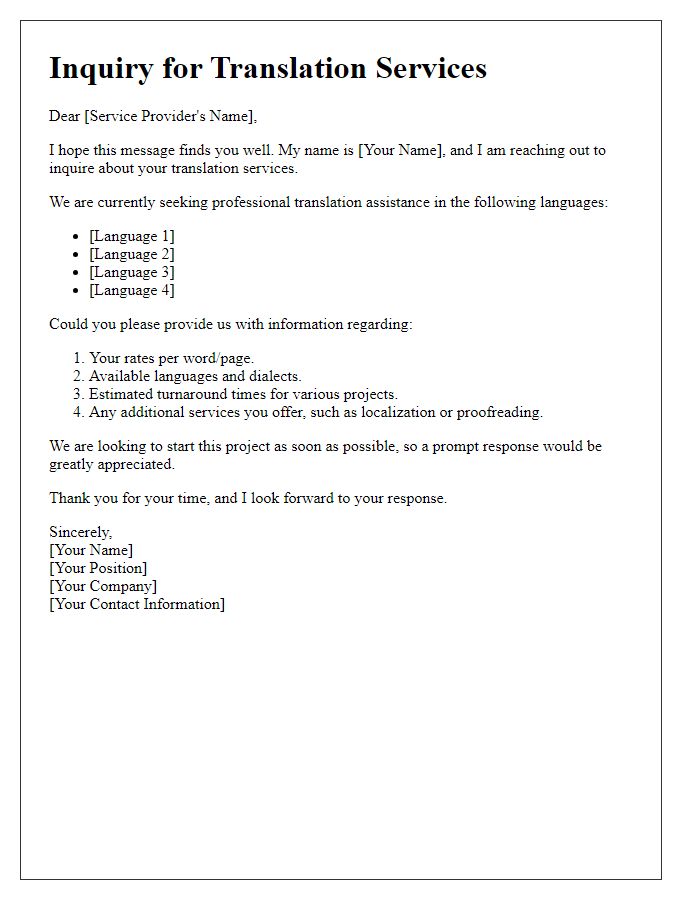
Letter template of question about professional multi-lingual translation
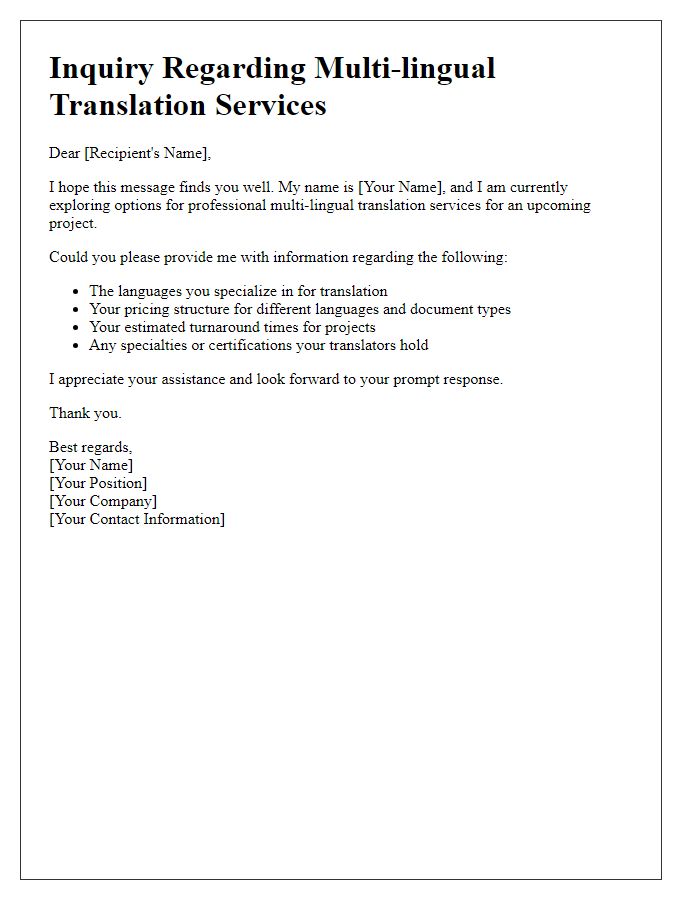

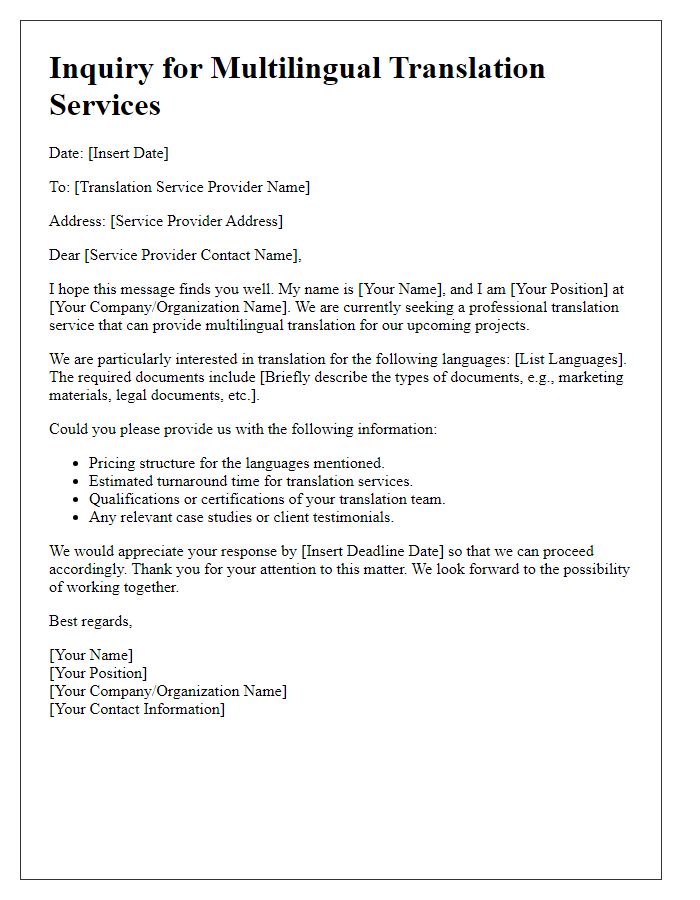
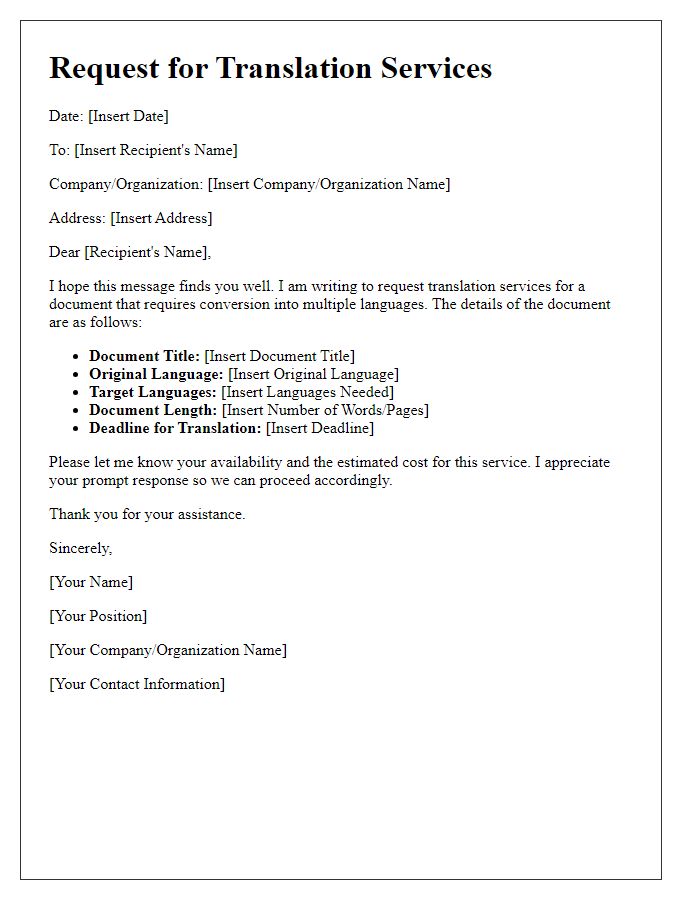
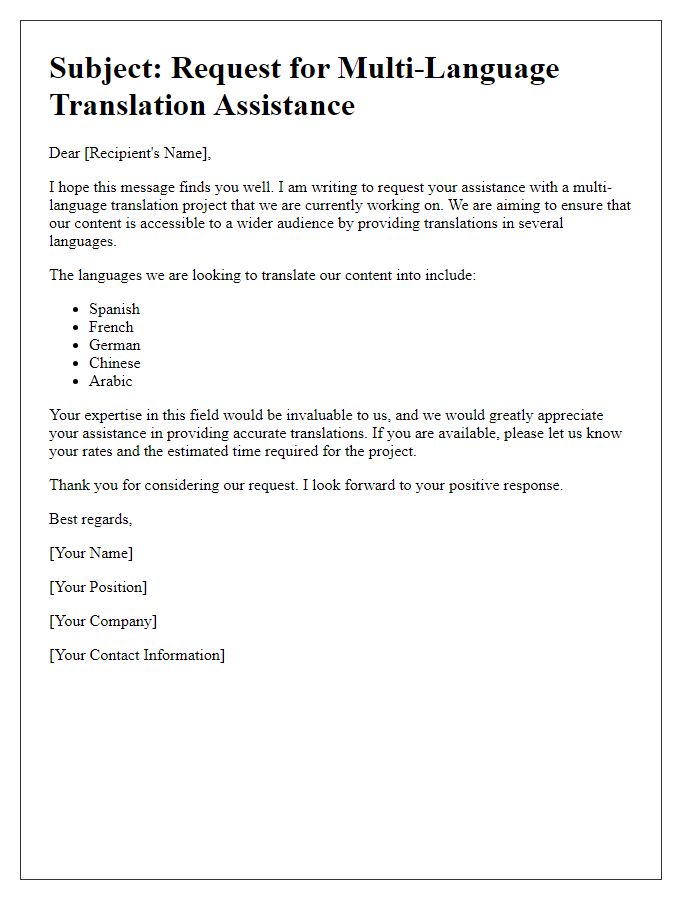
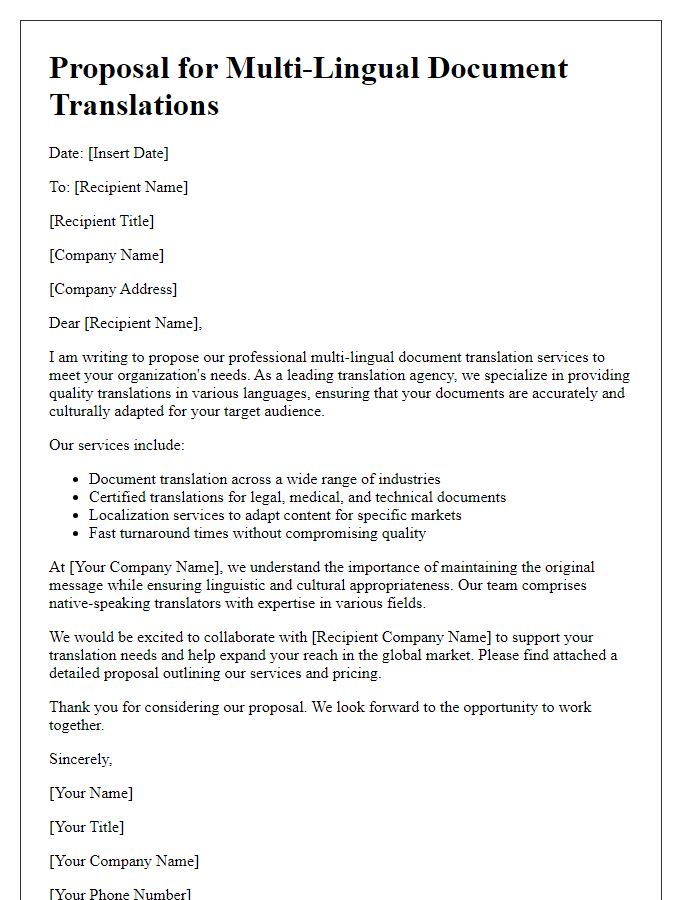
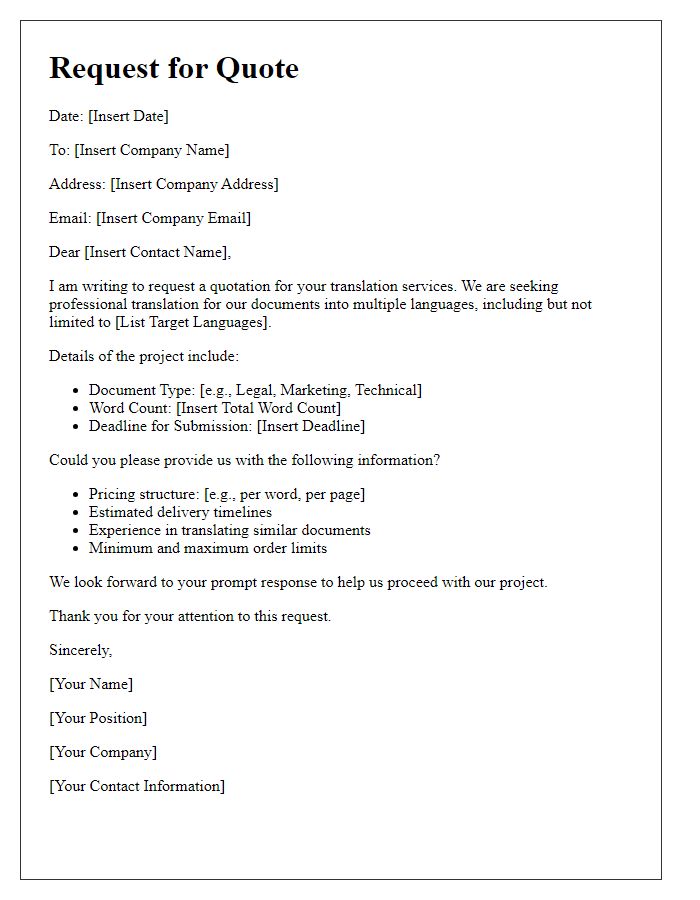
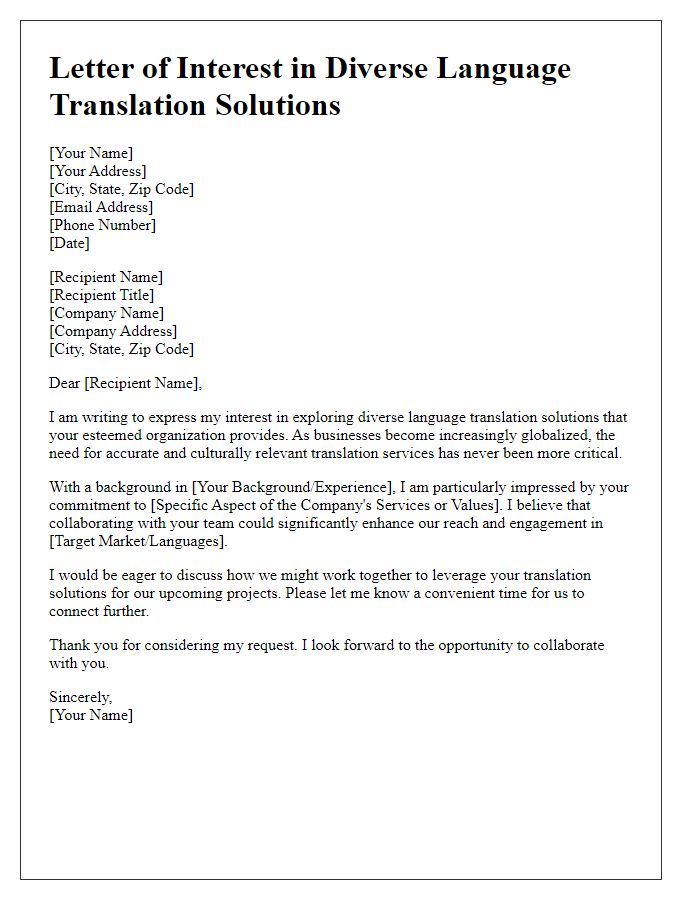
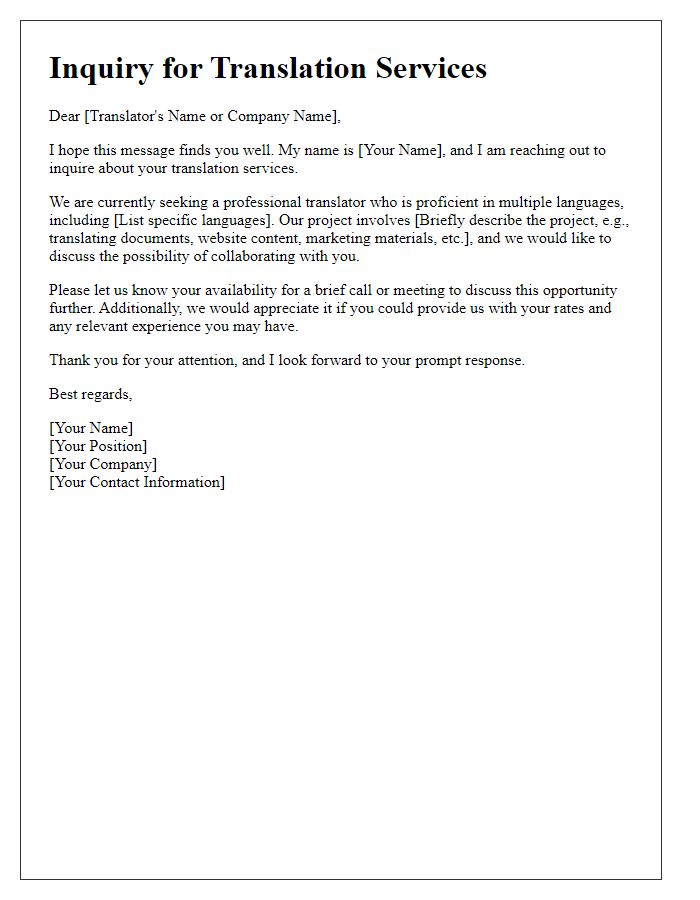
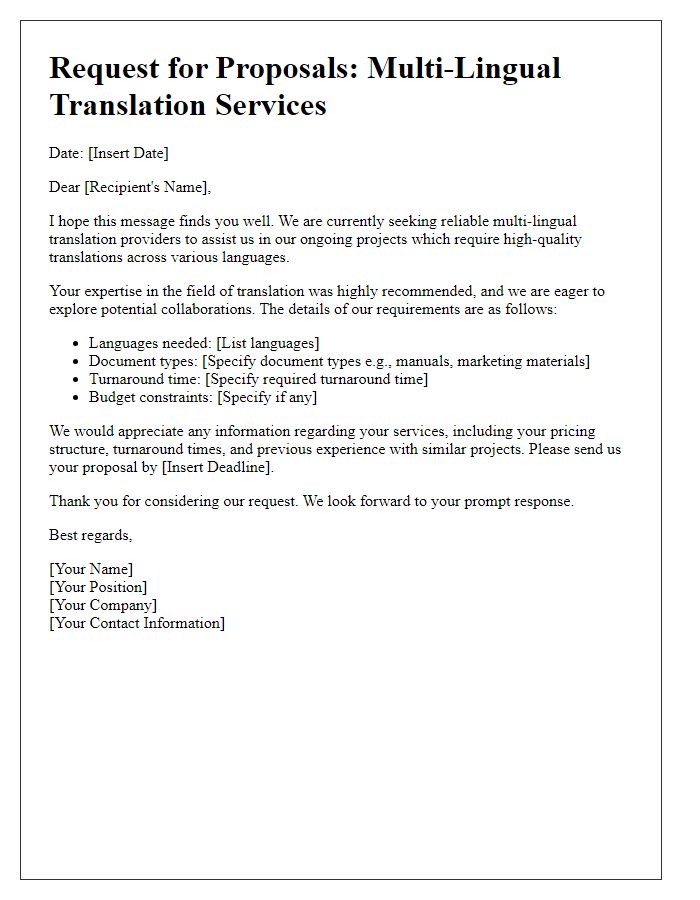


Comments